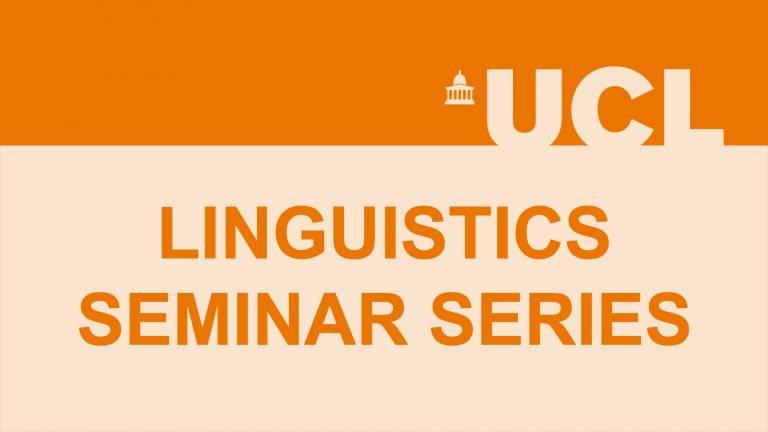UCL Linguistics Seminar Talk - Agnes Kovacs
26 January 2022, 3:00 pm–4:30 pm

Can infants exploit abstract combinatorial thought for processing language and social events?
Event Information
Open to
- All
Organiser
-
Richard Jardine
Can infants exploit abstract combinatorial thought for processing language and social events?
Human adults can productively combine and generate an unbounded sequence of abstract concepts and thoughts, as also reflected in natural language. One interesting debate concerns the question whether pre-verbal or nonverbal creatures who do not have access to a fully-fledged language system can rely on representations and mental operations that allow forming abstract concepts, flexibly combining and changing them via specific operators, and even embedding their output in beliefs attributed to others. Here I will discuss three lines of studies that will target some of these questions in infants. First, we aimed to tackle on early compositionality in language by teaching 12-month-olds novel quantity labels (for ‘one’ and ‘two’), and testing whether they can flexibly combine these newly learned labels with familiar nouns. Next, in a non-verbal study we asked whether infants could combine functions by learning two arbitrary operations and combining their outcomes. In a second line of study, we addressed whether 15-and 18-month-old infants map different forms of verbal negation on propositional negation. Last, I will present research investigating whether 12-month-olds can embed contents involving propositional negation into beliefs attributed to others.
Please contact Richard Jardine to receive a Zoom link for the seminar.
About the Speaker
Prof Agnes Kovacs
at Central European University
More about Prof Agnes Kovacs Close
Close

